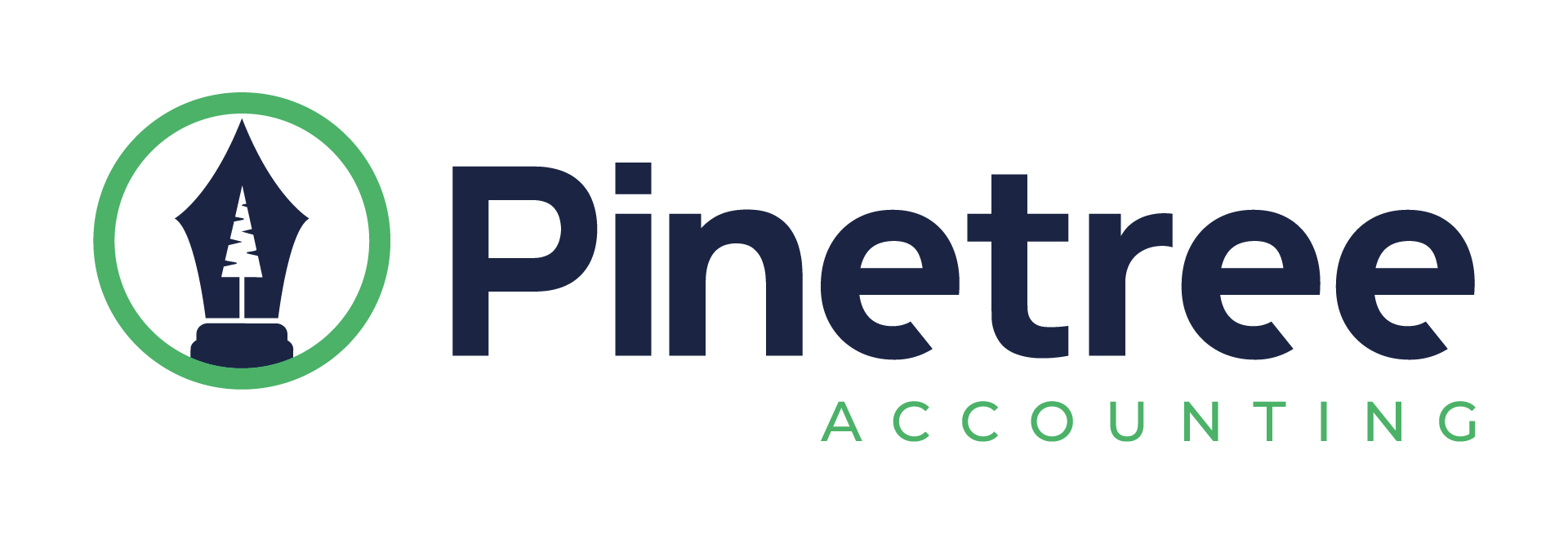Hong Kong’s travel and tourism industry is experiencing a robust recovery in 2025, with visitor arrivals rebounding and the sector contributing significantly to the local economy. Travel agencies and tour operators across the territory are capitalizing on renewed demand from Mainland China, Southeast Asia, and international markets. However, behind every successful tour package and seamless travel experience lies a critical business foundation: effective financial management. For travel agencies navigating seasonal demand fluctuations, complex supplier relationships, advance payment structures, and evolving regulatory requirements, implementing sophisticated financial systems is essential for profitability and sustainable growth.
Understanding Financial Complexities in the Travel Industry
Travel agencies and tour operators face unique financial challenges that distinguish them from other service businesses. The industry operates on a reverse cash flow model where customers pay deposits or full amounts months before travel dates, while suppliers often require payment before services are rendered. This creates a complex working capital situation where agencies hold customer funds in trust while managing their own cash flow needs.
The seasonal nature of travel demand compounds these challenges. Peak periods around Chinese New Year, summer holidays, Christmas, and Golden Week generate substantial revenue but require significant upfront investment in hotel blocks, airline seats, and tour guide resources. Conversely, shoulder and low seasons can see revenue drop by 50-70%, yet fixed costs like office rent in Tsim Sha Tsui or Central, staff salaries, and technology subscriptions remain constant.
Foreign currency exposure represents another significant financial risk. Agencies booking international hotels, airlines, and ground services deal in multiple currencies—USD for many airlines, EUR for European suppliers, JPY for Japan tours, THB for Thailand packages. Exchange rate fluctuations between booking and payment can erode margins significantly. A 5% currency movement on HK$1 million in supplier payments represents HK$50,000 in unexpected costs.
Additionally, the rise of online travel agencies and direct booking platforms has intensified competition, squeezing margins. Traditional commission rates have declined from 10-15% to as low as 5-8% in many segments, making operational efficiency and tight financial control more critical than ever.
Implementing Robust Trust Account Management
Travel agencies holding customer deposits and advance payments must implement rigorous trust account management to protect client funds and maintain regulatory compliance. The Travel Industry Council of Hong Kong (TIC) and relevant ordinances establish strict requirements for handling customer money.
Best practices for trust account management include:
Separate Trust Accounts: Maintaining dedicated bank accounts exclusively for customer deposits, completely separate from operating accounts used for business expenses and owner compensation.
Detailed Reconciliation: Reconciling trust accounts daily or at minimum weekly, matching customer payments received against bookings, and tracking supplier payments made on behalf of specific customers.
Clear Audit Trails: Creating transparent documentation linking each customer payment to specific tour bookings, and tracking which funds are released when services are delivered or refunded when bookings are cancelled.
Client Ledgers: Maintaining individual ledgers for each customer showing deposits received, payments made to suppliers on their behalf, and remaining balances held in trust.
Regular Reporting: Generating monthly trust account reports showing total funds held, outstanding tour obligations, and reconciliation to bank balances.
Mismanagement of trust funds can result in serious consequences including license suspension, financial penalties, and criminal charges. Professional bookkeeping and accounting services ensure trust accounts are managed with the precision and documentation necessary for full compliance.
Managing Supplier Relationships and Payment Terms
Travel agencies depend on complex networks of suppliers including airlines, hotels, ground transportation providers, attractions, restaurants, and local guides. Managing these relationships effectively while optimizing payment terms directly impacts working capital and profitability.
Strategic supplier management includes:
Negotiating Payment Terms: Securing net 30 or net 45 payment terms with regular suppliers rather than prepayment requirements improves cash flow by allowing agencies to collect from customers before paying suppliers.
Volume Commitments: Negotiating better rates and terms by committing to minimum booking volumes with preferred hotel chains, airlines, or destination management companies.
Deposit vs Full Payment: Understanding which suppliers require full prepayment versus partial deposits, and scheduling payment timings to match customer payment collection.
Currency Hedging: For large forward commitments in foreign currencies, considering forward contracts or options to lock in exchange rates and eliminate currency risk.
Supplier Credit Evaluation: Regularly assessing supplier financial stability to avoid situations where prepayments are lost due to supplier bankruptcy, particularly important for smaller boutique hotels or local operators.
Key Supplier Payment Considerations
| Supplier Type | Typical Payment Terms | Cash Flow Impact | Risk Management |
|---|---|---|---|
| Major Airlines | Payment at ticketing | Immediate cash outflow | Use customer deposits; consider credit facilities |
| International Hotels | 30-60 days pre-arrival | Moderate advance payment | Match to customer payment schedule |
| Local Hotels | Net 30 post-departure | Positive cash flow | Lower risk; verify services delivered |
| Ground Transport | 50% deposit, balance on completion | Mixed timing | Clear cancellation terms needed |
| Tour Guides | Payment on completion | Positive cash flow | Ensure quality before payment |
Maintaining detailed supplier records within accounting systems enables agencies to track payment obligations, forecast cash needs, and identify opportunities to negotiate better terms with high-volume partners.
Establishing Effective Revenue Recognition Policies
Revenue recognition for travel agencies requires careful consideration of when to record income. Unlike retailers who recognize revenue at point of sale, travel agencies must account for the timing difference between receiving customer payments and delivering travel services.
Generally accepted accounting principles require revenue recognition when services are rendered, not when payment is received. For travel agencies, this typically means:
Tour Completion Method: Recording revenue when the tour is completed and services have been fully delivered to customers. Customer deposits received in advance are recorded as “Deferred Revenue” or “Customer Deposits” on the balance sheet until tours are completed.
Component Recognition: For complex multi-day tours, some agencies recognize revenue proportionally as each component is delivered—accommodation after each night’s stay, activities as they occur, transportation as used.
Commission-Based Services: For agencies earning commissions by booking services on behalf of customers without taking financial risk, revenue is recognized when bookings are confirmed and commission is earned.
Proper revenue recognition ensures financial statements accurately reflect business performance and prevents premature recognition of income that may need to be refunded if tours are cancelled or rescheduled.
Professional audit arrangement services verify that revenue recognition policies comply with Hong Kong Financial Reporting Standards and are applied consistently across all tour products.
Tracking Direct Costs and Gross Margin by Tour
Understanding true profitability requires tracking direct costs for each tour product separately. Travel agencies should implement systems that capture:
Direct Supplier Costs: All costs directly attributable to specific tours including airline tickets, hotel accommodations, ground transportation, attraction tickets, meals included in packages, and tour guide fees.
Tour-Specific Marketing: Advertising costs specifically promoting particular tour packages rather than general brand marketing.
Commission Payments: Referral fees or commissions paid to partners who bring customers to specific tours.
By matching these direct costs against tour revenue, agencies calculate gross margin—the critical metric showing how much money remains after direct costs to cover operating expenses and generate profit.
Gross margin analysis by tour product reveals:
- Which destinations and tour types generate the highest profitability
- Where pricing adjustments may be needed to improve margins
- Which tours consume disproportionate resources relative to profitability
- Opportunities to negotiate better supplier rates for high-volume products
Many travel agencies discover that their highest revenue tours don’t necessarily deliver the best margins. A HK$30,000 per person European tour generating 15% gross margin (HK$4,500) may be less profitable than a HK$8,000 Japan tour with 25% margin (HK$2,000), especially considering the operational complexity of managing longer international tours.
Controlling Operating Expenses
While gross margin analysis focuses on direct tour costs, controlling operating expenses determines ultimate profitability. Travel agencies face substantial overhead including:
Occupancy Costs: Office rent in commercial areas with high foot traffic, utilities, building management fees, and maintenance.
Personnel Expenses: Salaries for travel consultants, operations staff, and management, plus mandatory MPF contributions, employee benefits, and training costs.
Technology and Systems: Booking systems, customer relationship management software, accounting platforms, website hosting, and cybersecurity.
Marketing and Advertising: General brand advertising, website development, search engine optimization, social media marketing, and participation in travel exhibitions.
Licenses and Memberships: Travel Industry Council membership fees, business registration, professional association memberships, and insurance premiums.
Professional Services: Accounting, legal, and consulting fees for ongoing compliance and business advisory.
Effective expense control requires regular review of all cost categories, identifying opportunities for reduction without compromising service quality. Strategies include:
- Negotiating office lease renewals well in advance to secure favorable terms
- Implementing hybrid work arrangements to reduce space requirements
- Consolidating technology platforms to eliminate redundant subscriptions
- Focusing marketing spend on highest-converting channels based on data analysis
- Cross-training staff to handle multiple functions, improving productivity
Professional payroll services ensure accurate processing of employee compensation while maintaining compliance with Employment Ordinance requirements, MPF regulations, and Inland Revenue Department withholding obligations.
Forecasting Cash Flow Accurately
Given the travel industry’s seasonal patterns and advance payment structures, accurate cash flow forecasting is essential. Travel agencies should develop rolling 12-month cash flow projections updated monthly, incorporating:
Seasonal Booking Patterns: Historical data showing when customers typically book and pay for different types of tours, enabling prediction of cash inflows by month.
Supplier Payment Schedules: Projected outflows based on booked tours and known supplier payment terms, including airline ticketing deadlines, hotel prepayment requirements, and ground service deposits.
Operating Expense Timing: Regular monthly expenses like rent, salaries, and subscriptions, plus periodic expenses like insurance premiums, license renewals, and tax payments.
Peak Season Working Capital: Identifying months when cash outflows for supplier prepayments exceed cash inflows from customer deposits, requiring reserves or credit facilities.
Currency Considerations: Forecasting foreign currency payment obligations and potential exchange rate impacts on cash requirements.
Effective cash flow forecasting enables proactive management. If projections show a HK$500,000 cash shortfall in two months due to peak season supplier prepayments, agencies can arrange credit facilities, negotiate extended payment terms, or adjust customer deposit requirements well in advance.
Managing Seasonal Cash Flow Peaks
Travel agencies should consider establishing:
- Cash reserves equivalent to 2-3 months of operating expenses for seasonal troughs
- Revolving credit facilities with banks that can be drawn during high-volume booking periods
- Seasonal payment arrangements with key suppliers who understand industry cash flow patterns
- Dynamic deposit structures requiring larger upfront payments during periods of high supplier prepayment obligations
Navigating Complex Tax Obligations
Travel agencies face multiple tax obligations requiring careful planning and accurate record-keeping:
Profits Tax: Charged at 16.5% for corporations on profits arising in or derived from the territory. Agencies must properly allocate income and expenses, apply appropriate revenue recognition policies, and maintain documentation supporting all deductions.
Salaries Tax: Staff working in sales, operations, and administration are subject to salaries tax on employment income. Employers must withhold tax where required and submit annual employer returns to IRD.
Business Registration: All travel agencies must maintain current business registration and pay annual fees, with certificates displayed prominently at business premises.
Withholding Tax: Payments to non-resident service providers may be subject to withholding tax obligations, particularly relevant when paying overseas suppliers or tour guides.
Tax planning opportunities for travel agencies include:
- Timing of revenue recognition and expense claims to optimize tax positions within HKFRS requirements
- Ensuring all eligible business expenses are properly documented and claimed
- Utilizing two-tiered profits tax rates for qualifying smaller agencies
- Structuring international operations to avoid double taxation through proper planning
Professional tax returns preparation ensures compliance with all IRD requirements while identifying legitimate opportunities to minimize tax obligations.
Maintaining Regulatory Compliance Documentation
Travel agencies must maintain comprehensive documentation for multiple regulatory purposes:
Travel Industry Council Compliance: Documentation supporting TIC license requirements including proof of insurance coverage, financial statements, trust account records, and customer complaint handling records.
Customer Contracts: Written agreements for all tour bookings clearly stating services included, payment terms, cancellation policies, and liability limitations.
Supplier Agreements: Contracts with hotels, airlines, ground operators, and other service providers documenting services, rates, payment terms, and cancellation conditions.
Insurance Records: Proof of travel industry liability insurance, professional indemnity coverage, and employee compensation insurance as required by law.
Refund Documentation: Complete records of refunds processed including original booking details, cancellation reasons, refund calculations, and payment confirmations.
Complaint Records: Documentation of customer complaints received, investigations conducted, resolutions provided, and lessons learned for service improvement.
Proper documentation protects agencies during disputes, demonstrates compliance during regulatory reviews, and provides evidence supporting financial statement accuracy during audits.
Professional corporate secretarial services ensure all statutory filings are completed on time, including Companies Registry annual returns, business registration renewals, and relevant regulatory submissions.
Implementing Financial Controls
As travel agencies grow, implementing internal controls becomes essential to prevent errors and fraud while ensuring financial accuracy:
Segregation of Duties: Separating responsibilities for booking tours, collecting customer payments, paying suppliers, and reconciling accounts among different staff members.
Dual Authorization: Requiring approval from a manager or director for significant financial commitments such as large supplier prepayments, credit terms, or refund processing beyond standard policies.
Regular Account Reconciliation: Reconciling all bank accounts, trust accounts, and supplier accounts monthly with reviews by someone independent of daily transaction processing.
Booking System Integration: Ensuring tour bookings in customer management systems integrate with accounting records, preventing situations where tours are booked but payments not properly recorded.
Supplier Payment Verification: Implementing procedures to verify that supplier services were actually delivered before processing payments, particularly for local ground services.
Petty Cash Controls: Establishing limits on petty cash funds with regular reconciliation and documentation requirements for all disbursements.
Access Restrictions: Limiting accounting system access based on roles, ensuring only authorized personnel can modify financial data, process refunds, or approve payments.
Even small agencies with limited staff can implement basic controls. For example, the agency principal can review and approve all transactions weekly, even if daily bookkeeping is handled by operations staff.
Choosing Appropriate Business Structure
Travel entrepreneurs establishing new agencies should carefully consider business structure, as this decision impacts taxation, liability protection, operational flexibility, and financial management requirements:
Sole Proprietorship: Simplest structure with minimal regulatory requirements. However, owner assumes unlimited personal liability for all business obligations including customer refunds, supplier payments, and potential legal claims.
Partnership: Allows multiple individuals to share ownership, management, and profits. Requires clear partnership agreements documenting capital contributions, profit sharing, decision-making authority, and exit procedures.
Limited Company: Provides liability protection separating personal and business assets. Requires more stringent compliance including annual audits (unless exempted), financial statements prepared according to HKFRS, and statutory filings with the Companies Registry. Offers tax planning opportunities and enhanced credibility with suppliers and institutional customers.
Many successful travel agencies begin as sole proprietorships before incorporating as limited companies once annual revenue exceeds HK$2-3 million and the business employs multiple staff members.
Professional company formation services guide entrepreneurs through structure selection, registration with appropriate authorities including the Companies Registry and Travel Industry Council, and establishment of proper financial systems from inception.
Leveraging Technology for Financial Efficiency
Modern travel agencies increasingly rely on integrated technology systems that connect customer bookings, supplier management, and financial accounting:
Integrated Booking and Accounting Systems: Platforms that automatically create accounting entries when tours are booked, deposits received, or supplier payments made, eliminating manual data entry and reducing errors.
Multi-Currency Accounting: Systems that handle bookings and payments in multiple currencies, automatically calculating exchange differences and providing visibility into foreign exchange exposure.
Automated Reconciliation: Tools that match bank transactions to accounting records automatically, particularly valuable for high-volume agencies processing dozens of customer payments daily.
Real-Time Financial Dashboards: Reporting tools providing instant visibility into key metrics including cash position, aged receivables, upcoming supplier payment obligations, and profitability by tour product.
Cloud Accessibility: Systems accessible from any location enabling staff to access financial information while traveling, meeting with suppliers, or working remotely.
Document Management: Digital storage of contracts, invoices, receipts, and compliance documents with automatic backup and organized retrieval.
Leading travel-specific management systems include TourPlan, Rezdy, and TravelWorks, while general accounting platforms like Xero and QuickBooks offer flexibility for agencies building custom solutions.
Monitoring Key Performance Indicators
Beyond traditional financial statements, travel agencies should track industry-specific KPIs that drive business decisions:
Gross Margin by Product: Profitability percentages for different tour categories revealing which products deserve marketing focus and resource allocation.
Customer Acquisition Cost: Total marketing and sales expenses divided by new customers acquired, indicating the efficiency of business development efforts.
Average Transaction Value: Revenue per booking, with trends indicating whether agencies are successfully upselling premium tours or seeing downward pricing pressure.
Booking Lead Time: Average days between booking and departure, affecting cash flow planning and inventory management.
Cancellation Rate: Percentage of bookings cancelled before departure, impacting revenue forecasting and supplier relationship management.
Repeat Customer Rate: Percentage of customers who book multiple tours, indicating service quality and relationship management effectiveness.
Supplier Payment Days: Average days between receiving supplier invoices and making payment, measuring working capital efficiency.
Regular KPI monitoring—typically monthly for active agencies—enables proactive management and early identification of concerning trends requiring intervention.
Planning for Crisis Recovery and Resilience
The COVID-19 pandemic demonstrated the vulnerability of travel agencies to external shocks. Building financial resilience requires:
Diversified Product Mix: Offering domestic tours, regional destinations, and international packages reduces dependence on any single market segment that may face disruption.
Multiple Revenue Streams: Developing complementary services like visa assistance, travel insurance sales, corporate travel management, or destination wedding planning provides income stability.
Variable Cost Structure: Maximizing variable costs relative to fixed costs by using contract tour guides rather than employees, flexible office arrangements, and commission-based sales structures.
Strong Supplier Relationships: Maintaining excellent relationships with key suppliers who will work cooperatively during disruptions, offering flexible rebooking or refund terms.
Adequate Insurance: Comprehensive insurance coverage including business interruption insurance, professional liability, and cyber insurance protecting digital customer data.
Financial Reserves: Maintaining cash reserves sufficient to cover 3-6 months of operating expenses, providing runway to navigate temporary disruptions without immediate crisis.
Conclusion
Effective financial management separates thriving travel agencies from those struggling to survive in a competitive and sometimes volatile industry. Beyond basic bookkeeping, successful operators implement sophisticated systems for trust account management, supplier relationship optimization, accurate revenue recognition, detailed cost tracking, and proactive cash flow forecasting. As regulatory requirements intensify, technology evolves, and market conditions shift, agencies that invest in robust financial infrastructure position themselves for sustainable profitability and resilient growth.
However, maintaining professional-standard financial management while focusing on customer service, product development, and supplier relationships presents practical challenges for travel entrepreneurs. Many successful agencies recognize that partnering with specialized financial professionals enables them to concentrate on their core competencies—creating exceptional travel experiences—while ensuring expert handling of complex financial matters.
Partner with Pinetree for Expert Travel Industry Financial Management
At Pinetree, we understand the unique financial complexities facing travel agencies and tour operators across Hong Kong, Kowloon, and the New Territories. Our specialized bookkeeping and accounting services are designed specifically for the travel and tourism industry, providing:
- Trust account management ensuring customer deposits are handled with complete compliance and transparency
- Multi-currency accounting tracking foreign exchange exposure and managing currency risk across diverse supplier relationships
- Seasonal cash flow planning helping you navigate the industry’s dramatic revenue fluctuations and working capital requirements
- Revenue recognition expertise ensuring compliance with HKFRS while accurately reflecting business performance
- Tour-level profitability analysis revealing which destinations and products deliver the best margins
- Regulatory compliance support through our corporate secretarial services covering TIC requirements, Companies Registry filings, and statutory obligations
- Seamless audit preparation with our audit arrangement services making year-end processes efficient and stress-free
- Strategic tax planning through expert tax returns preparation optimizing your tax position within legal frameworks
- Payroll management via professional payroll services handling employee compensation with full MPF and IRD compliance
Whether you’re an aspiring entrepreneur considering company formation to launch your travel agency or an established operator looking to upgrade financial systems for better visibility and control, Pinetree provides tailored solutions that scale with your business.
Contact Pinetree today to discover how our travel industry financial expertise can free you to focus on creating unforgettable journeys for your customers while we handle your financial foundations with precision and professionalism.






